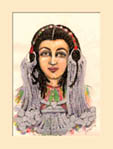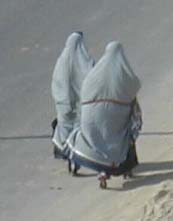 |
Culture.

|

|
 |
SIWAN CULTURE
I invite you all to experience the magical world that is the Siwa
Oasis. We wish to share our rich tradition and culture with you.
We originate from the North African Berber tribes known as Amazigh. We are the Siwan Berbers. Because of our geographical isolation we have remained relatively
unchanged. (To learn more about individual families please click on the family
tree)
We live in a tribal system. This is broken up into two main groups, the East tribe and the West
tribe. There are ten tribes within these two groups and one group lives in El Gara.
The leader of each group is the the chief we know as Amazigh Agleed, or as the
Sheikh, the head of the family. He leads the family council of ten members, all respected elders of the tribe. He personally settles problems within the family group and also gives advice to other tribes. In this way, harmony, respect and close relationships are maintained both within the family tribe and co-existing tribes.
In the case of disputes between members of different tribes, the respective
sheikhs arbitrate using the Siwan law and the Koran. Admonishments may be beatings, the giving of alms, fines or banishment from the
tribe. If the problem is connected with the land, a special committee will
gather and decide the land rights using old papers relating to the land. Some of these important papers are more than one hundred years old.
The Egyptian police also work in cooperation with the Sheikh when appropriate.
The young are brought up to respect their elders and the Sheikh is respected by
all. A child pretending to be an adult by doing what grown-ups do is chastised by being called
'Agleed'. It is a society where everyone has a place.
The Siwan people have a different perspective on life from other Egyptians. It
is a mentality based on the tribal family. We marry within our own tribe as this is our preferred way. In this way we preserve the integrity of our community. However there are
drawbacks to this
as it can lead to genetic problems such as albinos.
We live a healthy life in the oasis. We help each other. There is nothing that we will not do for each other. In times of hardship we will give help and money. If one of us is punished then we help
each other pay the fine or it may well be that the fine is not required as long as an apology has been given. We forgive each other.
Wealthier individuals will assist those who are less fortunate and will do this unobtrusively by setting up covenants. At Ramadan and after the Eid el Fitr and the Eid el Adha alms are given. These are also occasions of great celebrations. For more details click on the menu.
|
 |